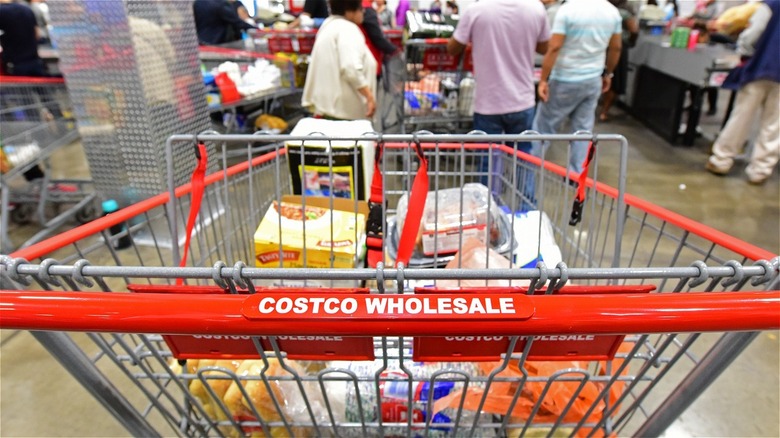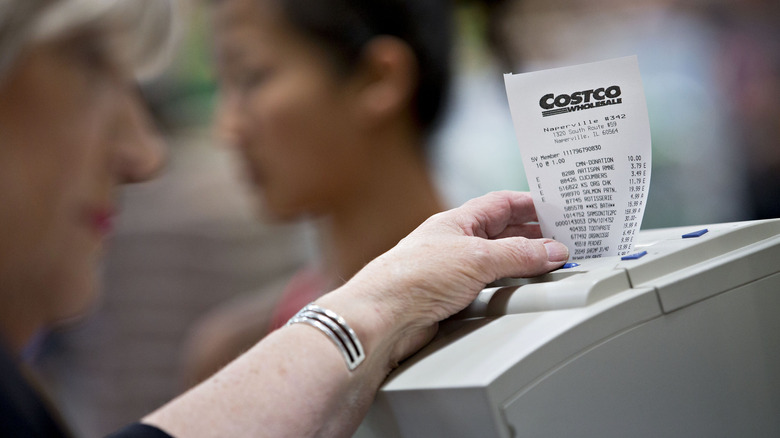The Real Reason Costco Stock Just Majorly Dropped
Costco is what's known as a "consumer staples" retailer — the warehouse club carries food and beverages, household goods, and hygiene items. In fact, on May 2, The Motley Fool rated Costco in particular as its top "consumer staples" stock for investors to buy. Costco's retail stock did well during the height of the coronavirus pandemic, the outlet noted. So, what's changed?
Investor Place reported on May 18 that Costco's stock value had dropped by more than 11%. While that's not as dramatic as Target's stock deflation — shares in the big-box retailer fell 25% in value that same day, per the Wall Street Journal — it still puts the company in a somewhat precarious place.
Costco hasn't said much about the stock decrease yet, but The Motley Fool notes that the company is expected to announce its quarterly earnings within the next two weeks. In a May 2021 conference call about its third-quarter earnings that year, Costco acknowledged the effects of inflation, reported CNBC, and it appears the issue hasn't gone away.
Inflation has affected stocks' value
Business-wise, Costco did relatively well during the COVID-19 pandemic, thanks to its ability to cater to customers' needs while they stayed at home. Forbes reported in December that the company kept its 113 million members engaged and mitigated inflation by absorbing higher costs on many items, keeping prices stable for customers. But inflation is also the reason Costco has seen a decrease in stock value, notes Investor Place.
There have been signs that Costco needed to make up for inflation, including higher prices on some food items. "We can't hold on to all those," Costco Chief Financial Officer Richard Galanti said of rising labor and transportation costs on an analyst conference call in September, via CNBC. "Some of that has to be passed on, and it is being passed on. We're pragmatic about it."
Consumer staples companies seem to be struggling with inflation and food shortages, and Costco is no exception. The May 18 Wall Street Journal report doesn't spell terrible news for investors, necessarily, but it's also not great news for the company.

